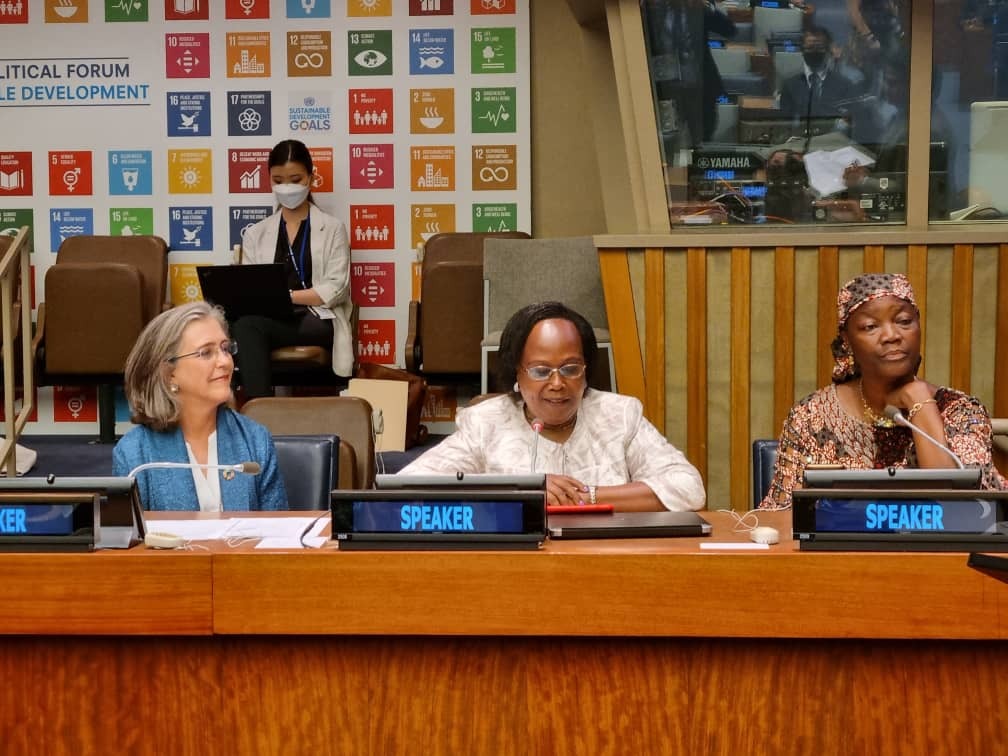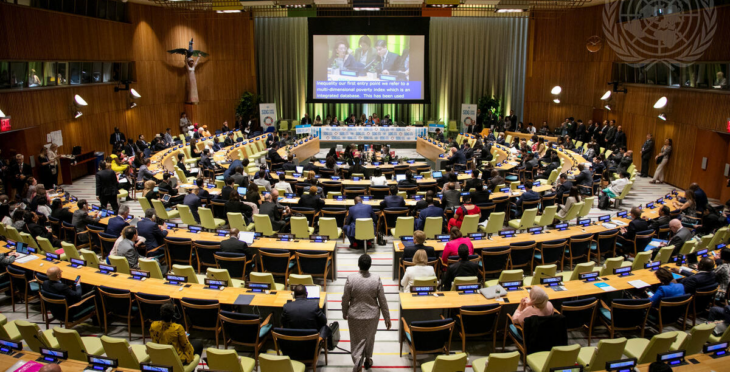When the 2030 Sustainable Development Goals (SDGs) were launched (along with MCLD) in September 2015, the UN committed to host a “High-Level Political Forum” each year to review progress. Each year, there is a focus on particular SDGs and country can provide Voluntary National Reports (VNRs).
The theme for the 2022 HLPF is “Building back better from the coronavirus disease (COVID-19) while advancing the full implementation of the 2030 Agenda for Sustainable Development ”. It will review in-depth Sustainable Development Goals 4 on quality education, 5 on gender equality, 14 on life below water, 15 on life on land, and 17 on partnerships for the Goals.
Forty-four countries will present their VNRs, including the following nations whose civil society participates in MCLD: Ethiopia, Ghana, Liberia, Malawi, Netherlands, Pakistan, Philippines, Senegal, Sri Lanka, and Togo.
MCLD will participate: Our East Africa coordinator Dr. Daisy Owomugasho spoke during two session on July 7 and 8, and our global coordinator John Coonrod will attend the Ministerial Sessions on July 13-15.

As always, we will discuss with government representatives the five MCLD Goals on inclusion, community finance, governance, public services and resilience. In addition, we polled national chapter leaders who emphasized particularly timely issues:
- Security: several of our countries are facing terrorist threats that are rolling back progress on the SDGs. The governments must find ways to ensure peace as a pre-requesite to progress.
- Partnership: a number of countries are now in the process of partnering with MCLD to strengthen communities — a trend we want to encourage as we believe it is the only pathway to the SDGs.
- Shrinking Civic Space: a number of countries have enacted laws which are reducing the roles of civil society in human rights and governance, quite the opposite of the partnership we feel is critical.
- Sustaining Official Development Assistance: the refugee crisis in Europe is leading some countries to reduce aid budgets MCLD hopes that they maintain a 1% of GNP commitment.


